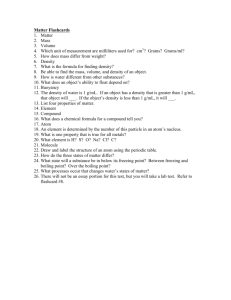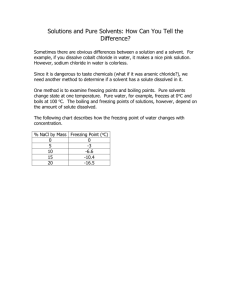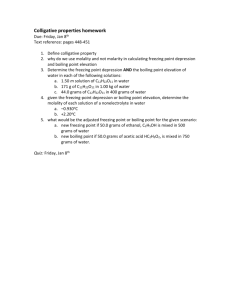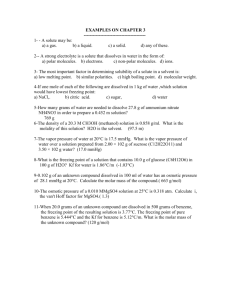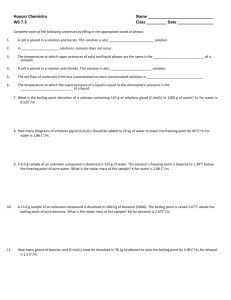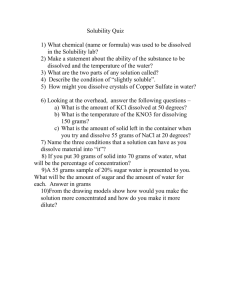FPD and BPE
advertisement
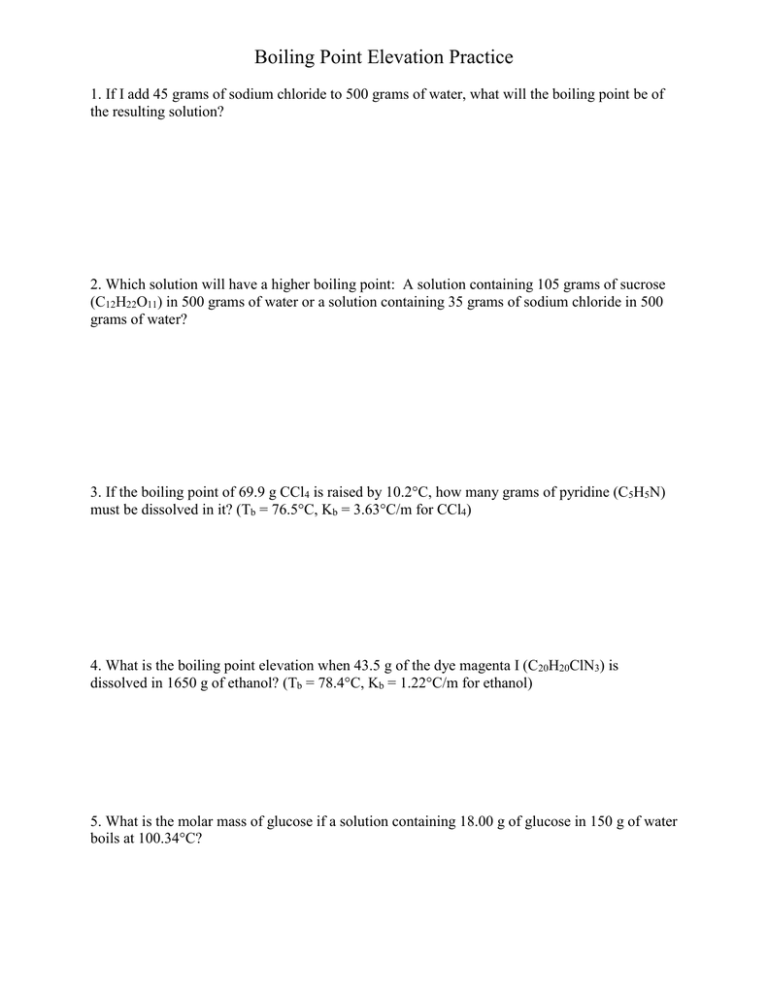
Boiling Point Elevation Practice 1. If I add 45 grams of sodium chloride to 500 grams of water, what will the boiling point be of the resulting solution? 2. Which solution will have a higher boiling point: A solution containing 105 grams of sucrose (C12H22O11) in 500 grams of water or a solution containing 35 grams of sodium chloride in 500 grams of water? 3. If the boiling point of 69.9 g CCl4 is raised by 10.2°C, how many grams of pyridine (C5H5N) must be dissolved in it? (Tb = 76.5°C, Kb = 3.63°C/m for CCl4) 4. What is the boiling point elevation when 43.5 g of the dye magenta I (C20H20ClN3) is dissolved in 1650 g of ethanol? (Tb = 78.4°C, Kb = 1.22°C/m for ethanol) 5. What is the molar mass of glucose if a solution containing 18.00 g of glucose in 150 g of water boils at 100.34°C? Freezing Point Depression Practice 1. When 15.0g of ethyl alcohol, C2H5OH, is dissolved in 750 grams of formic acid, the freezing point of the solution is 7.20°C. The freezing point of pure formic acid is 8.40°C. Solve for Kf for formic acid. 2. A 1.20 gram sample of an unknown covalent compound is dissolved in 50.0 g of benzene. The solution freezes at 4.92°C. Calculate the molecular weight of the compound. The freezing point of pure benzene is 5.48°C and Kf is 5.12°C/m. 3. Vitamin K is involved in the blood clotting mechanism. When 0.500 g is dissolved in 10.0 g of camphor, the freezing point is lowered by 4.43 °C. Calculate the molecular weight of vitamin K, knowing that Kf is 40°C/m for camphor. 4. Which will lower the freezing point of 500 g of water more; 59 g of sodium chloride, or 90 g of magnesium chloride?
